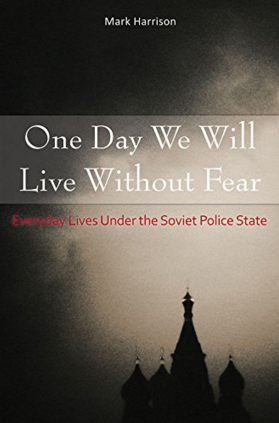

This week the Hoover Institution Press releases One Day We Will Live without Fear by Hoover fellow and University of Warwick professor of economics, Mark Harrison. A collection of stories that tells what daily life was like for people under the regime of the Soviet police state, the book draws from Communist Party and secret police records housed at the Hoover Institution Library & Archives, the book describes how people became entangled in the workings of Soviet rule.
“This is a very different book about the USSR. It tells everyday stories about how the ordinary secret policemen interacted with ordinary citizens and shows us the pathos, the arbitrariness, and even the sometimes comical side of a system of pervasive oppression,” said Robert Service, St Antony’s College, Oxford University, and senior fellow, Hoover Institution, Stanford University.
From the 1930s to the 1970s, the Soviet police state underwent many changes. With the end of Stalin’s rule, indiscriminate violence and arbitrary arrests became a thing of the past. But its underlying principles remained the same: to forestall any threat to the ruling Communist Party. Based on historical records, One Day We Will Live without Fear tells what life was like for people under this regime. The author outlines the seven basic principles on which that police state operated during its entire history, from the Bolshevik revolution of 1917 to the collapse of the Soviet Union in 1991, and illustrates them throughout the book.
“The internal life of the Soviet Union was terra incognita for most of the years when it strove to recast humanity in its image,” said David Satter, senior fellow at the Hudson Institute and author of The Less You Know, the Better You Sleep: Russia’s Road to Terror and Dictatorship under Yeltsin and Putin. “In this important book, Mark Harrison shows the human reality of Soviet life, the persecution, the humor, the cruel compromises, the futility. Every story is a cross section of society, and by telling stories, Professor Harrison reveals a reality that even now is all too little understood.”
Although well-known people appear in the stories, the central characters are people who will have been remembered only within their families. These tales, chosen for their humanity and inhumanity, offer a glimpse of the inner workings of one of the world’s most effective and durable police states.


















